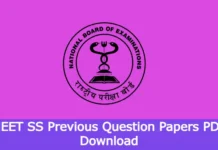New Delhi: The Supreme Court on Friday said that states and Union Territories cannot encourage students without conducting examinations as directed by the UGC.
Justices Ashok Bhushan, Rt. Subhash Reddy and MR. The jury, which included Shah, said college students should have final year exams and internal assessments are not enough to award degrees.
However, the court said states and UTs could contact the UGC to extend the deadline for final year exams to be completed.
The UGC issued a notification on July 6 that ordered universities to conduct final year exams by the end of September.
Some states contested the notification. Such as the Government of Maharashtra. The state’s disaster management authority has decided on July 13 not to conduct tests on infectious disease, the Supreme Court has said.
Advertisement: 0:22
VDOA.I.
At this point, the court is now of the opinion that the State Disaster Management Authority’s decision on the UGC guidelines will prevail. However, the SDMA cannot dictate that students should be promoted based on past achievement.
Applications
The UGC notification was challenged in the Supreme Court by an application including 31 students from universities across the country. The UGC’s decision forces students to attend exams during the epidemic, which poses a great risk to their health, the petitions said.
UGC defended its deadline in the Supreme Court last month, saying the decision was made to “protect the academic future of students.” It states that a student’s achievement in tests, especially in the final year or terminal semester, gives her or her confidence.
However, several state governments, including the Maharashtra, Odisha and West Bengal governments, have opposed the move, citing the Kovid-19 epidemic and the lack of infrastructure.
The Delhi government has indicated accessibility issues in conducting online classes. It said, “At Delhi’s state universities, great efforts have been made to conduct online classes, but the reality of our digital divide is that online classes are not equally accessible to everyone.”
Due to such problems, Delhi asserted that “the students did not get the kind of preparation required to try a full-scale exam.”
The court reserved its verdict on August 18.





